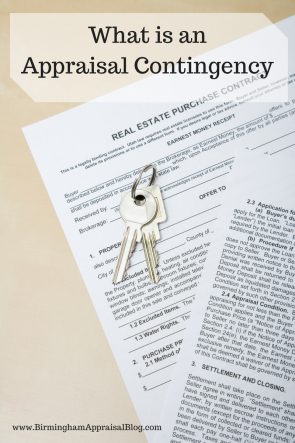Caveat Emptor
 I’ve been writing about property inspection waivers (PIW’s) and hybrid appraisals recently and thought I would highlight some of the most important things that buyers should know to protect themselves.
I’ve been writing about property inspection waivers (PIW’s) and hybrid appraisals recently and thought I would highlight some of the most important things that buyers should know to protect themselves.
If you are curious about what PIW waivers and hybrid, or bifurcated appraisals are, check out my earlier posts. Today I want to concentrate on the things that could directly affect you as a buyer so let’s get straight to it.
What You Need To Know So You Don’t Get Screwed
1) If you sign a PIW waiver you have NO recourse- Did you know that if you sign a form that the bank provides saying that you agree to a PIW that you have no recourse against the bank if they did not value your home accurately? You cannot hold them responsible if the true value of your home is less than what they say it is.
The form effectively says that you cannot sue the bank nor Fannie Mae for any valuation inaccuracies. Because your home is typically your largest purchase and can impact your net worth you should think seriously before agreeing to a PIW and signing the bank’s release form.
2) The valuation tool the lender uses for their loan does you no good- You should know that the valuation tools that the bank uses if they forgo a traditional appraisal are for their own internal use. It helps them to manage their loan portfolios and is not intended for you the borrower.
As such, you cannot rely on their tool to help you make a purchase decision. In addition, you should not use their “appraisal” as the appraisal contingency if you include one in the contract (and you should include one).
3) Your appraisal contingency should be based on an appraisal you get, not the lender- An appraisal contingency that is included in your contract should reference an appraisal that you order and not the valuation the bank uses. Because the bank may not utilize a valuation tool that is acceptable for you the buyer when they use a PIW you should specifically state that the contingency is for the appraisal that you get.
appraisal contingency that is included in your contract should reference an appraisal that you order and not the valuation the bank uses. Because the bank may not utilize a valuation tool that is acceptable for you the buyer when they use a PIW you should specifically state that the contingency is for the appraisal that you get.
This way, if the property appraises for lower than the contract you have a way to get out of the contract and can even use your appraisal as a negotiation tool.
4) You may be paying the same amount for an inferior product- PIW’s are being sold to the public on the premise that they will help save you money because they are cheaper. You should make sure that if the bank utilizes a PIW that you will not be charged for a full appraisal.
Just keep in mind that you usually get what you pay for. Don’t expect the same thoroughness and accuracy with a PIW as you would get with an appraisal done by a real appraiser who actually visits the home, measures it, and observes its condition and floor plan layout.
5) The person visiting the home you’re buying may not even be an appraiser- Appraiser Ryan Lundquist recently wrote an excellent article where he interviewed an agent in his area that sold a home where the bank utilized a hybrid or bifurcated appraisal. He brings up some very important points and concerns.
The only thing I will add is that you may want to get your own appraisal that uses an appraiser who performs the entire appraisal process rather than relying on less educated inspectors that may not be fully aware of everything appraisers look for when performing an appraisal.
6) Your home may not be the size you think it is- Are you buying a home partly because of how big it  is? If so you may want to make sure that the home is actually the size they say it is.
is? If so you may want to make sure that the home is actually the size they say it is.
In a bifurcated appraisal, the property inspection is typically not done by an appraiser but rather an inspector as Ryan pointed out in his article. Since no standards have been set that dictate the skills or knowledge that these inspectors have you may not be getting someone who knows how to properly measure a home.
The home could possibly be smaller than they say it is. This could also affect what you pay for it because if it is smaller then you may very well be paying too much.
7) A recent PIW sale may be helping to overvalue your new home- One of the many concerns with the new PIW’s that I’ve mentioned is that they could possibly not give adequate information to help you determine if you are overpaying for the home. If there have been other PIW sales in your neighborhood that were actually overpriced they might be used as comps in your valuation which could result in you paying to much for your home.
This cycle could continue and the sale of your home may become a new overpriced comp for the area. This may result in a false upward trend in values in the area that is not thoroughly supported.
Conclusion
Do you have any other questions about what you need to know about PIW’s and hybrid appraisals to keep you informed? Leave a comment below and we’ll keep the conversation going. As always, thanks for reading.
Love the title of your Blog Tom. So true! Sad that lenders are making this sound like they are saving the borrowers money and time to get into their new home. When in reality the buyer is being hung out to dry as they are lulled into a false sense of security and no one in this process has their backs (except the Appraiser). I will NEVER do hybrid appraisals for all the reasons noted here and in Ryan’s post. I don’t like the liability here, forget about the cheap price they are paying appraisers for essentially the same liability in my opinion! Even if you CYA yourself that you did not go out to the property, I personally feel that Appraisers should reject such assignments because they are taking on an assignment where they know the first part of the process can be very flawed and therefore the final end result is also flawed. I do not like going into an appraisal assignment without having control of the most important segments of the process. Then and only then will I accept any fall out due to my own work. This whole situation is just maddening and if the BUYERS really knew what they were in for, in most every case, just like they get inspections , they would get their OWN appraisals. That should be required to protect all buyers. Thanks Tom~
Thanks, Mary. You bring up some very good points. Appraiser liability is going to go through the roof. Just today I got a request to do one of these bifurcated appraisals for $125, I just deleted the email. Someone brought up a good point in an online forum recently. They pointed out the fact that lenders would not allow trainees to look at a property but now they will allow Uber drivers to look at the property (nothing against Uber drivers). It’s also interesting that they would not allow us to use MLS photos in the past but now they are okay with it. As long as it suits them they’ll go along with anything. They are really not thinking about the far-reaching consequences.
Very good point about the trainees! So true.
Thanks Tom. Things are really changing and my sense is this is not only something real estate appraisers need to think through, but real estate agents as well. What advice will they give to their clients? Is there more or less liability for different advice given? This is huge and it’s critical to think through. Thanks for the link to my post too. Very cool.
I agree, Ryan. These things could have far-reaching consequences that the whole real estate industry needs to consider. Loved your article, too. It sounds like Chris was not too happy either. I think agents and appraisers need to band together to make sure these new types of “appraisals” do not negatively affect the industry.
Agree Ryan. I am going to a Lunch and Learn next week with full intentions of discussing these kinds of appraisals. I have advised Buyers Agents before that they need to beware of these issues because, I agree with you, they may have liablity that could come back to haunt them. For Example the PIW, they need to let their buyers know that this is NOT an appraisal and a Good Buyer’s Agent would suggest they get an appraisal, then I tell them to document their files accordingly. At least if they tell or suggest to the buyer to get an appraisal, they are covered.
Great idea of future talks to agents. This is something that could directly affect them in a negative way.